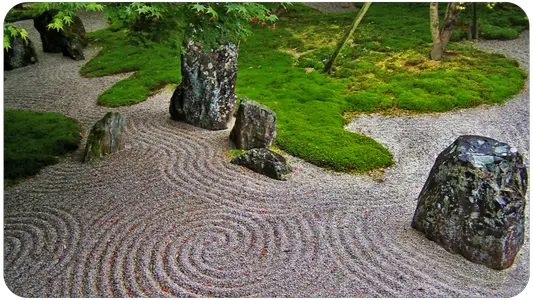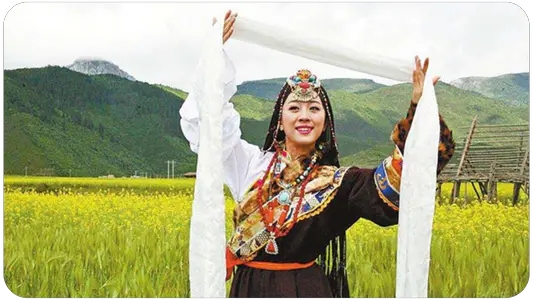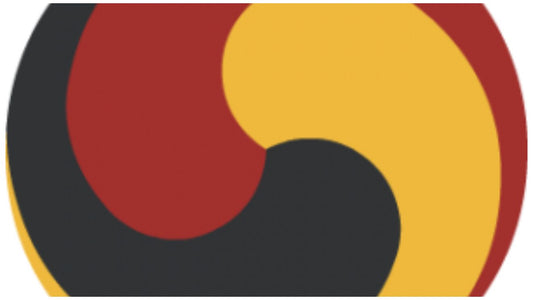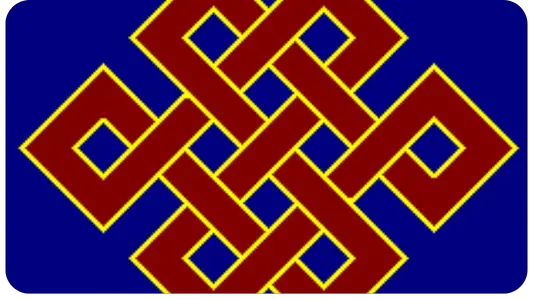Vesak (Pali: Vesākha , Sanskrit: Vaiśākha), also known as Wesak, Buddha Purnima and Buddha Day, is a festival traditionally observed by Buddhists and some Hindus, in India, Sri Lanka, Nepal, Tibet, Bangladesh, Bhutan, Indonesia, Singapore, Thailand, Cambodia, Laos, Malaysia, Myanmar, Mongolia, the Philippines, China, Japan, South Korea, North Korea, Taiwan, and Vietnam as "Buddha's Birthday," as well as in other parts of the world.
The festival commemorates the birth, enlightenment (Buddhahood) and death (parinirvana) of Gautama Buddha in the Theravada or Southern tradition.
The story
The decision to accept the celebration of the Wesākha festival on the occasion of the Buddha's birthday was formalized at the first conference of the World Buddhist Brotherhood held in Sri Lanka in 1950, although festivals were, in the Buddhist world, a centuries-old tradition. The resolution adopted at the World Conference reads as follows:
"That this Conference of the World Fellowship of Buddhists, while recording its appreciation of the gracious act of His Majesty, the Maharaja of Nepal in making the full-moon day of Vesak a Public Holiday in Nepal, earnestly requests the Heads of Governments of all countries in which large or small number of Buddhists are to be found, to take steps to make the full-moon day in the month of May a Public Holiday in honor of the Buddha, who is universally acclaimed as one of the greatest benefactors of Humanity."
On Vesākha Day, Buddhists around the world commemorate events of significance to Buddhists of all traditions: the birth, enlightenment, and death of Gautama Buddha.
As Buddhism spread from India, it was assimilated into many foreign cultures and, as a result, Vesakha is celebrated in many different ways around the world. In India, Vaishakh Purnima Day is also known as Jayanti Buddha Day and has been traditionally accepted as the day of the Buddha's birth.
In 1999, the United Nations decided to celebrate Vesak Day internationally at its headquarters and offices.
The name of the observance is derived from the Pali term vesākha or Sanskrit vaiśākha , which is the name of the lunar month used in ancient India that falls in April - May.
In Mahayana Buddhist traditions, the festival is known by its Sanskrit name (Vaiśākha) and its variants. Local interpretations of the name vary by language, including:
Assamese: বুদ্ধ পূর্ণিমা Buddho Purnima
Bengali: বুদ্ধ পূর্ণিমা Buddho Purnima, বুদ্ধ জয়ন্তী Buddho Joyonti
dzongkha: སྟོན་པའི་དུས་ཆེན་༥ འཛོམས་ Dhüchen Nga Zom
Burmese: ကဆုန်လပြည့် ဗုဒ္ဓနေ့ Kasone Lapyany Buddha Nae (Full Moon Buddha Day of Kason)
Chinese: 佛陀誕辰紀念日; pinyin: Fótuó dànchén jìniàn rì, 佛誕 Fódàn (Buddha's Birthday), 浴佛節 Yùfójié (Buddha's Purification Festival), 衛塞節 Wèisāi jié (Vaisakh Festival)
Hindi: बुद्ध पूर्णिमा Buddha Pūrṇimā, बुद्ध जयन्ती Buddha Jayantī, वैशाख पूर्णिमा Vaisākh Pūrṇimā
Indonesian: Hari Raya Waisak
Japanese: 花祭り Hanamatsuri (Flower Festival)
Khmer: វិសាខបូជា Visak Bochea
Kannada: ಬುದ್ಧ ಪೌರ್ಣಮಿ Buddha Pournami
Korean: hangul: 석가 탄신일; hanja: 釋迦誕辰日 Seokka Tanshin-il (Shakyamuni Buddha's Birthday), 부처님오신날 Bucheonim Osinnal (Buddha Day)
Lao: ວິສາຂະບູຊາ Vixakha Bouxa
Malay : Hari Wesak (هاري ويسق)
Mongolian: Бурхан Багшийн Их Дүйцэн Өдөр Burkhan Baghshiyn Ikh Düytsen Ödör (Great Festival Day of Lord Buddha)
marathi: बुद्ध पोर्णिमा Buddha Pornima
nepalbhasha: स्वांया पुन्हि Swānyā Punhi
Nepali: बुद्ध पुर्णिमा Buddha Purnima, बुद्ध जयन्ति Buddha Jayanti
oriya ବୁଦ୍ଧ ପୂର୍ଣ୍ଣିମା Buddha Purnimā
Sinhala: වෙසක් Vesak
Tamil: விசாகத் திருநாள் Vicākat Tirunāḷ
tagalog Araw ng Bisyak
Telugu: బుద్ధ పౌర్ణమి Buddha Pournami, వైశాఖ పౌర్ణమి Vaisakha Pournami
Thai : วิสาขบูชา Wisakha Bucha
Tibetan:ས་ག་ཟླ་བ། Sa Ga Dawa (4th month moon)
Vietnamese: Phật Đản (Buddha's Birthday)
Holiday
In May 2007 there were two full moon days: the 1st and the 31st. Some countries (including Sri Lanka, Cambodia, and Malaysia) celebrated Vesākha on the 1st and others (Thailand, Singapore) celebrated the holiday on the 31st due to another local lunar celebration.
The difference is also evident in the observance of other Buddhist festivals, traditionally observed on the local full moon.
Similarly, in 2012, Vesak was observed on April 28 in Hong Kong and Taiwan, May 5 in Sri Lanka, May 6 in India and Bangladesh, May 28 in South Korea and June 4 in Thailand.
(In 1999, the Taiwanese government set Buddha's birthday on the second Sunday in May, the same day as Mother's Day.) In 2014, Vesak is celebrated on May 13 in Myanmar, Singapore, and Thailand, and on May 15 in Indonesia.
On Vesākha, devout Buddhists and followers gather in their temples before dawn to ceremonially and honorably raise the Buddhist flag and sing hymns in praise of the holy triple jewel: The Buddha , the Dharma (his teachings), and the Sangha (his disciples).
Devotees may bring simple offerings of flowers, candles and incense sticks to the feet of their teacher. These symbolic offerings remind devotees that just as beautiful flowers wither after a while and candles and sticks soon fade, so too is life subject to decay and destruction.
Devotees are asked to make a special effort to refrain from killing. They are encouraged to eat vegetarian food for the day. In some countries, including Sri Lanka, two days are set aside for the celebration of Vesākha and all liquor stores and slaughterhouses are closed by government decree during these two days.
Thousands of birds, insects, and animals are also released in what is called a "symbolic act of liberation" of giving freedom to those who are in captivity, imprisoned, or tortured against their will.
(However, this practice is prohibited in some countries, such as Singapore, because it is believed that released animals are unable to survive in the long term and may negatively impact the local ecosystem if they do.)
Some devout Buddhists will wear a simple white robe and spend the day in temples with renewed determination to observe the eight precepts.
Devotees are expected to listen to the monks' discourses. On this day, the monks will recite verses spoken by the Buddha twenty-five centuries ago to invoke peace and happiness for the government and the people. Buddhists are reminded to live in harmony with people of other religions and to respect the beliefs of others as taught by the Buddha.
Bringing happiness to others
Celebrating Vesakha (Vesak) also means making special efforts to bring happiness to unfortunate people such as the elderly, the disabled and the sick. On this day, Buddhists will distribute gifts of cash and kind to various charities around the country.
Vesākha is also a time of great joy and happiness, expressed not through the temptation of appetite but through concentration on useful activities such as decorating and lighting temples, painting, and creating exquisite scenes of the Buddha's life for public display.
Devout Buddhists compete to provide refreshments and vegetarian food to devotees who visit temples to pay homage to the Enlightened One.
Paying homage to the Buddha
Tradition attributes to the Buddha himself an instruction on how to pay homage. Just before he died, he saw his faithful servant Ananda crying. The Buddha advised him not to cry, but to understand the universal law that all compound things (including his own body) must disintegrate.
He advised everyone not to cry over the disintegration of the physical body but to consider his teachings (the Dhamma) as their teacher from then on, because only the truth of the Dhamma is eternal and not subject to the law of change.
He also emphasized that the way to pay homage to him was not simply by flowers, incense and lights, but by truly and sincerely trying to follow his teachings.
This is how Buddhists are supposed to celebrate Vesak: taking the opportunity to reiterate their determination to lead a noble life, develop their minds, show kindness, and bring peace and harmony to humanity.
Dates of observance
The exact date of Vesak is based on the Asian lunisolar calendars and is mainly celebrated in the month of Vaisakha of the Buddhist calendar and the Hindu calendar, hence the name Vesak.
In Nepal, which is considered the birthplace of Buddha, it is celebrated on the full moon day of the month Vaisakha of the Hindu calendar and is traditionally called Buddha Purnima, Purnima meaning the full moon day in Sanskrit. In Theravada countries that follow the Buddhist calendar, it falls on a full moon day in Uposatha, usually in the fifth or sixth lunar month.
Nowadays, in Sri Lanka, Nepal, India and Bangladesh, Vesak / Buddha Purnima is celebrated on the full moon day of May in the Gregorian calendar. In Thailand, Laos, Indonesia, Vesak is celebrated on the fourteenth or fifteenth day of the fourth month of the Chinese lunar calendar.
In China and Korea, in Vietnam, Buddha's birthday is celebrated on the eighth day of the fourth month of the Chinese lunar calendar, in Japan the same day but in the Gregorian calendar.
The date varies from year to year in the Western Gregorian calendar, but it usually falls in April or May. In leap years, it can be celebrated in June. In Bhutan, it is celebrated on the 15th day of the fourth month of the Bhutanese calendar based on the lunar calendar.
The United Nations designates the full moon day in May as the day of celebration, which it designated as an international day in 1999 by decision of the United Nations General Assembly "to recognize the contribution that Buddhism, one of the world's oldest religions, has made for more than 2,500 years and continues to make to the spirituality of humanity.
In the following table, year numbers between 2500 and 2599 are BE (Buddhist era).
Overview by country
In Japan
In Japan, Vesākha or 花祭 (hanamatsuri?) is also known as 灌仏会 (Kanbutsue?) , 降誕会 (Goutan'e?), 仏生会 (Busshoue?) , 浴仏会 (Yokubutsue?) , 龍華会 (Ryuge'e?) and 花会式 (Hanaeshiki?) . It is not a holiday. It is based on a legend according to which a dragon appeared in the sky on the day of the Buddha's birthday and poured him a soma.
It was celebrated on the 8th day of the fourth month of the Chinese calendar based on a legend that proclaims Buddha's birthday.
The celebration of the solar calendar has been celebrated on April 8 since the Meiji government in Japan adopted the Western solar calendar as the official calendar. Since the 8th day of the fourth month of the lunar calendar usually falls in May of the current solar calendar, it is now celebrated about a month earlier.
In Japan, celebrations on Vesak include pouring amacha (甘茶?) , a sweet tea made from Hydrangea macrophylla , over statues. In Buddhist religious sites such as temples and viharas, more elaborate ceremonies are held for Buddhist laymen, priests, monks and nuns.
In Nepal
Vesak, commonly known as "Buddha Jayanti" in Nepal, is marked as a public holiday. It is widely celebrated throughout the country, mainly in Lumbini - the birthplace of the Buddha and in Swayambhunath - a sacred stupa temple of Buddhists on a hill on the outskirts of Kathmandu.
The main gate of Swayambhu is open only on this day. Therefore, people from all over the Kathmandu valley are stimulated by the event. Thousands of pilgrims from all over the world gather to celebrate Buddha's birthday at his birthplace in Lumbini.
In Nepal, Buddha is revered by all religious groups. Therefore, "Buddha Jayanti". People give food and clothes to the needy and also give financial help to monasteries and schools where Buddhism is taught and practiced.
In Sri Lanka
Vesak is celebrated as a religious and cultural festival in Sri Lanka during the full moon of the lunar month of Vesak (usually in the month of May), lasting about a week, and is often celebrated by different religious people in Sri Lanka.
During this week, the sale of alcohol and fresh meat is usually prohibited, and slaughterhouses are also closed. During this week, the sale of alcohol and fresh meat is generally prohibited and slaughterhouses are also closed.
Celebrations include religious activities and almsgiving. Electrically lit pandals, called thoranas, are set up mainly in Colombo, Kandy, Galle and elsewhere, most of them sponsored by donors, religious societies and social welfare groups. Each pandal illustrates a story from the Jataka stories.
In addition, colorful lanterns called Vesak kuudu are hung in the streets and in front of houses. They signify the light of Buddha, Dharma and Sangha. Food stalls set up by Buddhist devotees called dansälas provide free food, ice cream and drinks to passersby.
Groups of people from community organizations, businesses, and government ministries chant bhakti gee (Buddhist devotional songs). Colombo is experiencing a massive influx of people from all parts of the country during this week.
In Korea
In South Korea, Buddha' s birthday is celebrated on the 8th day of the 4th month of the Korean lunar calendar (as well as in Hong Kong , Macau , Vietnam) and is a public holiday. This day is called 석가탄신일 (Seokga tansinil), meaning "Buddha's birthday" or 부처님 오신 날 (Bucheonim osin nal) means "the day the Buddha came".
It has now become one of the biggest cultural festivals in the country. Lotus lanterns cover the entire temple throughout the month, which is often flooded in the street. On the day of Buddha's birth, many temples offer free food and tea to all visitors. The breakfast and lunch provided is often sanchae bibimbap .
In Laos
The Vixakha Bouxa festival is the Lao version of the Thai Visakha Puja, to which it closely resembles. It commemorates the birth, enlightenment and death of the Buddha, all of which are said to have occurred on the same date.
It takes place around the month of May or Vesak, depending on the lunar calendar. Celebrations include dances, poems, parades, processions, deep meditation, theatrical performances and puppet shows.
Boun Bang Fay
Part of the Vixakha Bouxa festival is called Boun Bang Fay, or Rocket Festival. As this occurs during the hottest and driest season of the year, large handmade rockets are launched into the sky in an attempt to convince the celestial beings to bring rain.
Traditionally, Buddhist monks made the rockets from hollow bamboo tubes filled with gunpowder (among other things). Nowadays, lay people make the bang fai more like a fireworks display and hold competitions for the highest, fastest and most colorful rockets.
The event takes place on both sides of the Mekhong River border between Thailand and Lao PDR. Sometimes teams from neighboring countries compete. Tourists travel long distances to watch this popular event.
In Vietnam
Before 1975, Buddha's birthday was a public holiday in South Vietnam. It was a public festival with float and lantern parades in the streets. However, after the fall of Saigon, the day was no longer a public holiday.
In Malaysia
Celebrated by Buddhists to mark three important events in the life of Buddha - his birth, his enlightenment and his departure from the human world, the Wesak celebration in Malaysia begins at dawn when devotees gather at Buddhist temples across the country to meditate on the eight precepts.
Donations - giving food to the needy and offerings of incense and incense sticks - and praying. The sutras are chanted in unison by monks in saffron robes. The celebration is highlighted by a procession of candles. Wesak Day in Malaysia is a national holiday.
In Bangladesh
Wesak day is an important festival for most Bengali Buddhists if held in Bangladesh, it is probably celebrated in Chittagong, Dhaka and other Buddhist places and peoples in Bangladesh. In Bangla it is known as Buddho Purnima. It is also a public holiday in Bangladesh.
In Indonesia
This important and traditional holy day is observed throughout Indonesia, where it is known as Waisak Day. At Borobudur , thousands of Buddhist monks will gather to repeat mantras and meditate as they walk around the temple in a ritual called "Pradaksina.
It is a form of homage to the temple. The monks celebrate this special day by bottling holy water (which symbolizes humility) and carrying flames (which symbolize light and enlightenment) from one place to another.
The monks also took part in the "Pindapata" ritual, during which they received charity from the Indonesian people. The Waisak festival in Indonesia has been celebrated as a national holiday every year since 1983.
In Singapore
In Singapore, Vesak Day became a public holiday in 1955 after numerous public petitions replacing Whit Monday. In the early decades of the 20th century, Vesak Day was associated with the Ceylon community, which then celebrated it with its national holiday in a two-day event.
After World War II, there was a movement to make Vesak a public holiday, with the Singapore Buddhist Association leading the petitions.
At the United Nations
In 1999, the United Nations General Assembly adopted resolution 54/115 entitled "International Recognition of Vesak Day at United Nations Headquarters and Other United Nations Offices.
The international resolution recognized Vesak Day to acknowledge the contributions made by Lord Buddha and Buddhism for over two thousand five hundred years. It also called for the annual commemoration of this day at the United Nations headquarters in New York and at other United Nations offices around the world.
Holiday status in France
The Buddhist Union of France has obtained that, since 1997, a civil servant can obtain a leave of absence on the occasion of Vesak, granted by the administration if the requirements of the service allow it.
The date chosen, the day of the full moon in May, is fixed to within one day: leave of absence may be granted, at the request of the agent, with a difference in time.





